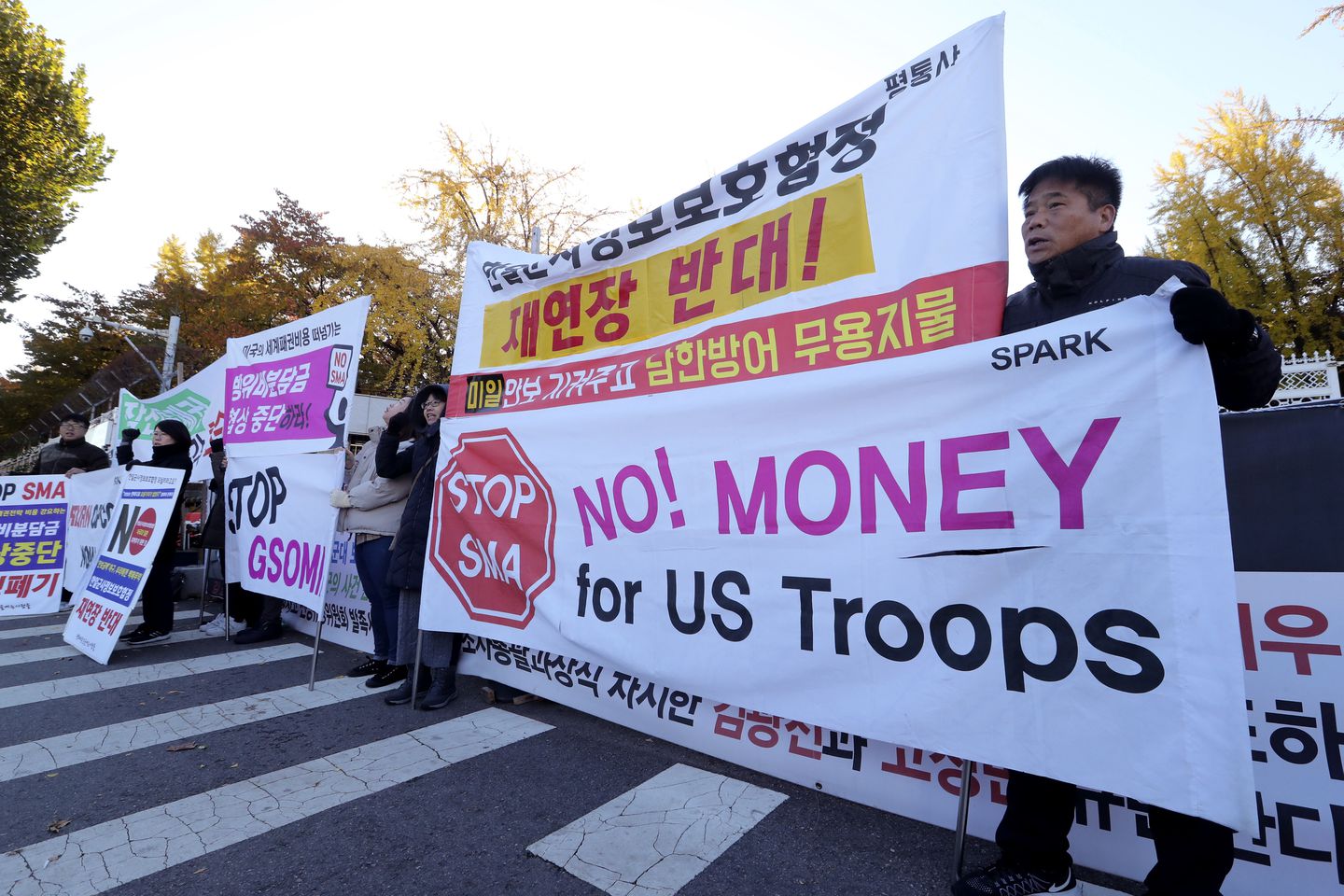
By Fang Xiaozhi
The US Secretary of Defense Mark Esper recently increased the pressure on ROK to share more expenses for America’s military troops on the Korean Peninsula because Washington believed the ROK was rich enough.
US forces more military expenses for stationed troops on ROK
According to the US, its troops stationed in ROK solely serve its security, and the constant muscle-flexing operations and military exercises by its warplanes and aircraft carriers in Northeast Asia are “defense preparations” against threats from the DPRK, so all the expenses should be borne by ROK. Washington requested that the expenses ROK bear should be increased to USD 5 billion, which includes expenses both within ROK and outside the Korean Peninsula, such as those occurring on Guam and Hawaii.
Such an avaricious request has challenged the bottom line of Seoul and encountered strong opposition in the country. The Blue House said that American troops stationed in ROK mainly serve America’s strategic need of containing other countries, and ROK has already offered maximal financial support for their main activities. For instance, it bore nearly 90% of the USD10.8 billion to build Camp Humphreys, America’s largest military base overseas. It has also purchased huge amounts of American weapons and provided living facilities for them.
US-ROK divergence presages its future relation with allies
The divergence on military expenses between US and ROK is bound to significantly impact the alliance relations.
Its alliance system has been an important means for America to exercise its global hegemony and also a crucial basis for its overseas military operations. Although the US military has never disclosed the accurate number of its overseas troops on the excuse that its intentions and capabilities should not be revealed to the opponents, incomplete statistics indicate a rough number of 350,000-400,000 troops can be reached.
The troops stationed overseas carry out political infiltration and control toward American allies and lay a solid foundation for its alliance system. With these troops, US provides security protection for its allies, but more importantly, it can interfere in their internal affairs and consequently expand its worldwide influence.
After Trump took the office, he has spared no effort in advocating “America first”. Believing that the allies undertake too few responsibilities and obligations, he insists that they should bear more, or even all of the military expenses for stationed American troops. As a result, military expense sharing has become an important reason for the tension between the US and its allies.
By forcing ROK to bear a much larger share of the expenses, the US will proceed to impose the same pressure on other allies such as Japan and Germany as well, so as to make them all bear more expenses for its overseas troops.
ROK will compromise in the end
Although the ROK strongly opposes America’s request for it to bear more military expenses, it stands at disadvantage to the US in terms of security because it doesn’t have independent national defense, its economy and politics are influenced by the US, and it is unable to deal with threats from the DPRK by itself.
In view of the Korean Peninsula situation and its own security, the ROK will continue to rely on the military support from US in the short term, and not accept the complete withdrawal of American troops from it. It hardly has any other alternatives in the game with the US, and will have to compromise in the end.
(Fang Xiaozhi, a researcher at the BRI Institute of Strategy and International Security, Fudan University)













